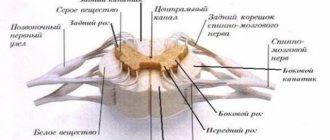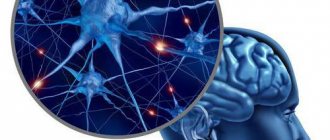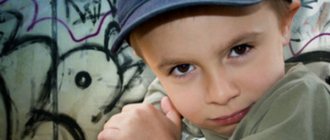In order to occupy a higher position in society, an individual forms knowledge about his position, which is a motivating factor. However, this does not happen in all cases. Sometimes a person behaves incorrectly from the point of view of society. This behavior is called antisocial.
Western psychology identifies a special type of abnormal social development of the individual. This is not officially accepted in our psychology. But both Western and our psychology mean the same thing by the term “antisocial behavior”.
What is antisocial behavior
Antisocial behavior is behavior that is characterized by overt or hidden aggression and hostility towards other members of society. This hostility manifests itself in varying degrees. In some cases, it can be expressed only by some violations of social rules, in other cases such behavior can cause serious harm to society.
In Western Europe and the USA, this behavior is diagnosed from the age of three. It manifests itself, for example, if a child tortures domestic animals with special sadism.
Types of antisocial behavior
Antisocial behavior can be either hidden or overt. At school age, open antisocial behavior often manifests itself in the form of verbal abuse of other children or fights with classmates. The hidden form can manifest itself in the form of theft, vandalism and arson.
In adolescence, girls are less prone to antisocial behavior than boys. However, they are characterized by more sophisticated forms of its manifestation. For example, they can provoke aggression towards each other or organize collective bullying of others. Representatives of the stronger sex are more prone to public manifestation of their antisocial behavior and physical aggression.
What to do about antisocial behavior
In order to rid a child of antisocial behavior and give him the opportunity to integrate normally into society, he must be taken to a psychologist. This specialist will teach the child to manage anger, recognize his own and others’ emotions, and find compromise solutions while in a team. Group exercises have a positive effect on the healing process.
For adults, in addition to a psychologist, in many cases, in order to get rid of signs of such behavior, it is necessary to use drug therapy that reduces the frequency of manifestations of impulsive behavior.
The concept of asociality in the sense in which we all know it was formed relatively recently. In the twentieth century, an antisocial personality began to be called those whose behavior and lifestyle did not correspond to generally accepted standards of ethics and morality. Asocial elements are:
- individuals without a fixed place of residence,
- beggars,
- addicted to alcohol and drugs,
- people with non-social behavior due to mental health problems.
Historically, the word “asociality” (“a” from ancient Greek is a particle meaning negation) meant the same thing, but was not strictly negative. They were called monks, and in many religions this way of life was a positive feature, since it implied distance from society for closer service to God. Now in society the concept has taken on a purely negative connotation.
Sociopathic child
The mentioned features, as a rule, become noticeable quite early. Antisocial children are capricious, irritable, often hyperactive, strive to control adults and achieve what they want at any cost. They are cruel to their peers, often insulting or humiliating them.
Antisocial behavior of adolescents manifests itself in an interest in a forbidden pastime that is condemned in society. The use of alcohol, drugs, early and promiscuous sex, membership in criminal gangs and other typical types of antisocial behavior become commonplace for such young people.
By the way, an interesting observation: for members of a criminal gang, the rules that operate within it are usually of great importance, including, for example, rules prohibiting the betrayal of other gang members, requiring respect for the leader, and so on. These rules require accepting and taking into account the needs of others, while antisocial individuals will never act in this way.
It is important to understand that one-time antisocial behavior does not mean that your son or daughter has antisocial personality disorder. But if all the described phenomena are observed regularly, and the conclusions of specialists are appropriate, then most likely the child really has a tendency towards asociality.
It is not 100% likely that a child predisposed to sociopathy will develop into a completely antisocial personality. How do antisocial tendencies arise in general, and is it possible to fight them? In other words, is asociality congenital or acquired? Let's look at the reasons that cause antisocial disorder.
What does an antisocial lifestyle mean?
The social way of life familiar to everyone is a certain set of actions that a person performs throughout his life:
- gets an education
- works,
- communicates with friends,
- creates a family,
- raises children.
The opposite lifestyle is behavior that is contrary to social norms. Those who lead such a lifestyle consciously or unconsciously oppose themselves to society and live contrary to established norms and canons.
Often such a way of life is destructive in relation to others and because of this, a negative attitude has formed towards asocial individuals in society. The opinion was formed that those:
- those who do not work provide for themselves through illegal means;
- those who do not communicate with others do so for mental reasons;
- those who do not start a family and raise children do so because of problems with violence on their part.
This is true, but not always. Such manifestations are more often characteristic of misanthropes - those who have developed hatred of others. They also have an asocial lifestyle, but it develops against the background of a different worldview.
The reasons for the opposite of a social way of life often do not depend on the will of a person. Its development can be facilitated by:
- lack of livelihood,
- absence of home,
- problems in relationships with family,
- development of addiction to gambling, alcohol or drugs.
In any of these cases, a person needs support. But due to the negative attitude from society, he does not receive it, becoming more and more immersed in problems without the ability to overcome them.
A person has little chance of returning to normal life; a persistent lifestyle is formed, which increasingly contradicts established norms.
Signs of asociality
Antisocial people manifest their personality disorders by a certain style of behavior, which is formed at an early age. Children with antisocial disorder are prone to the following symptoms:
- they often leave home, may disappear for several days, and upon returning they make promises that this will not happen again, as a rule, they do not keep their promises;
- they often fight, and choose those who are weaker to show aggression;
- abuse animals;
- constantly lie to peers and parents for various reasons;
- show a tendency to hang out in “bad company”, where they can commit arson, theft and rape;
- don't want to study.
Symptoms of antisocial behavior that later appear in adulthood:
- difficulties in work that arise due to laziness and lack of motivation (often antisocial people do not work, although they have a lot of opportunities for this);
- frequent and unjustified absences from work;
- irritability and aggression directed both at surrounding strangers and at members of one’s own family (beating one’s wife and children);
- tendency to commit criminal offenses;
- ignoring one’s financial obligations - an antisocial person does not pay off debts, does not pay child support, does not help friends in need due to the lack of any responsibility;
- inability to plan one’s own life, manifested by frequent moves and job changes.
Also, in adult life, an antisocial personality does not have family relationships due to frequent lies, a tendency to alcoholism, and a lack of responsibility for the health and financial well-being of their loved ones. An antisocial introvert thinks only about his own needs, often goes into the world of his own fantasies and does not strive to survive in harmony with society. It is not for nothing that in the 20th century monks, hermits and wanderers were considered asocial. This political term included all the lower strata of society - beggars, drug addicts, homeless people, prostitutes and simply people with mental disorders.
What is antisocial human behavior?
What distinguishes an antisocial person? What behavior is typical for him? If you ask anyone about this, the characteristics will turn out to be purely negative. But this issue needs to be approached more broadly. This behavior can be characterized by two simple theses:
- partial or complete self-isolation from society, which provokes isolation of the antisocial personality from society;
- the negative attitude of such a person towards society, which also turns into the opposite negative.
These characteristics have a boomerang effect. The development of asociality comes from a person, but then there is a response from society. If we break this type of behavior down into smaller particles, we will see that it is characteristic:
- lack of desire to legally work for the benefit of oneself, one’s family and society;
- lack of desire to start a family or live with one;
- lack of desire to participate in the life of society.
These three points cause:
- attempts to find a means of existence on the edge or beyond the law;
- communication with similar asocial individuals with whom there are at least some common interests;
- the development of a way of life that is alien to society, and which provokes the development of problems and inconveniences for those citizens who do not perceive asociality in its essence.
Summarizing all that has been said, we can come to the conclusion that asociality is a type of mental disorder. Its hallmark is behavior that harms society or does not bring any benefit.
There is a fine line between antisocial and antisocial behavior. An antisocial personality deliberately acts against generally accepted social norms.
Can antisocial behavior be a positive trait?
In some cases, alienation from society is not an evil, but a blessing. Such a trait is considered positive in the religious world, where distance from society is a step towards getting closer to God. And such examples are not isolated.
There are also cases of conscious manifestation of an antisocial nature. They are usually called crises of a certain age. A person consciously withdraws “into himself”, limits his communication with the outside world in order to resolve internal problems.
This behavior does not bring any harm to society, and after a certain period the person returns to normal life. Therefore, asociality cannot be considered a purely negative trait. It must be assessed in relation to each case.
Causes
There are three interrelated groups of factors under the influence of which a sociopath is formed.
The first group includes biological factors. Indeed, asociality can be inherited, this mainly concerns criminal tendencies. In addition, it can be caused by various chromosomal abnormalities in the development of the fetus, the mother's use of alcohol or drugs during pregnancy, and complications during childbirth.
The list of social factors includes, for example, rude or aggressive treatment of a child in the family, indifference to him, and lack of attention. So destructive for the psyche - even of an adult, and not just a growing person! - the situation is often typical of families where the parents themselves have psychological problems, so we can say that social factors often overlap with biological ones, and therefore, the likelihood of developing and strengthening sociopathic personality traits increases.
Such asocial families need supervision from guardianship authorities. In extreme cases, it is necessary to separate children and parents so that the child sees other examples, values and guidelines. Also, the prevention of antisocial behavior may include other measures, among which the most common are the following:
- Involving children with antisocial tendencies in sports, creative or other extracurricular activities (to provide the necessary burst of energy).
- Promoting a healthy lifestyle and socially approved behavior.
- Psychologist's conversations with both parents and children.
Prevention of antisocial phenomena, of course, will give the desired result only if it is carried out both at school (or other institution that the child attends) and at home.
An antisocial child has a special type of thinking, and this is a personal factor that contributes to the development of sociopathic tendencies. The type of thinking in question involves an inadequate assessment of the social situation.
A person is determined in advance that all the actions of others that he does not like are committed specifically to cause inconvenience to him. He expects that people around him will show anger and aggression towards him, and he himself intends to respond in kind.
And when peers or adults really get irritated, shout or even use physical violence, a person predisposed to asociality only becomes stronger in the correctness of his views. A vicious circle that is extremely difficult to break.
Thus, the causes of antisocial behavior can be explained by biological, social and personal factors, and most likely, a combination of several of them. Author: Evgenia Bessonova
The concept of asociality in the sense in which we all know it was formed relatively recently. In the twentieth century, an antisocial personality began to be called those whose behavior and lifestyle did not correspond to generally accepted standards of ethics and morality. Asocial elements are:
- individuals without a fixed place of residence,
- beggars,
- addicted to alcohol and drugs,
- people with non-social behavior due to mental health problems.
Historically, the word “asociality” (“a” from ancient Greek is a particle meaning negation) meant the same thing, but was not strictly negative. They were called monks, and in many religions this way of life was a positive feature, since it implied distance from society for closer service to God. Now in society the concept has taken on a purely negative connotation.
Who is an antisocial person?
Summarizing what was said above about this lifestyle and behavior, we can come to the only correct conclusion:
Please note that there is no negativity in this definition, since it is impossible to generalize all cases. Antisociality can be a positive, neutral or negative trait. This type of behavior can also occur due to health problems. It is characteristic of schizophrenia, in which an extreme degree of opposition to society is manifested - the patient’s absolute inability to build relationships with others. A negative attitude towards patients does not correspond to moral standards. Another fairly common example is teenage subcultures. At the age of 13-17, young people often hide from external problems within themselves, not wanting to seek help from their parents.
This condition is very dangerous, as it can provoke mental disorders and suicidal tendencies. Having noticed antisocial behavior in a teenager, it is important to help him solve the problems through the efforts of his parents and a psychologist.
Asociality in the negative sense is a serious problem that requires an integrated approach to its resolution:
- treatment, often forced, of individuals with mental illness;
- helping people for whom such a lifestyle is a necessary measure;
- social adaptation of those who led an antisocial life due to problems with the law.
Many countries have effective national programs for the socialization of such people, and they show results. This confirms that asociality is not a death sentence. But to return to society, such people need help.
A person’s behavior is influenced by the norms and laws of the society in which he lives. Legal, ethical, moral foundations guide the actions, way of thinking and actions of an individual. If a person ignores or deliberately violates generally accepted norms and demonstrates this to others (actively or passively), then his behavior is regarded as asocial or deviant. People of all age groups can demonstrate it, regardless of gender, material income, level of education, or professional activity.
What is an antisocial personality?
Asocial – does not recognize generally accepted norms of behavior and morality.
This interpretation of the term more accurately describes its use and associations when using this word.
In a broader concept: asocial – not social, moving away from people. From this point of view, introverts can be called antisocial personalities, but this use of the word is not popular.
To understand what lies behind the term “asocial”, it is necessary to find out to whom it applies, what characterizes the actions of these subjects, and what kind of life they lead.
Let's figure it out.
Antisocial personality
We are talking about a person whose all actions come down to satisfying his own desires (often these are only physiological needs). Such people do everything only for themselves, without regard for others, without taking into account their desires and needs.
For asocial people there are no moral principles, they do not feel guilty for their actions, and are not afraid of punishment for illegal actions.
All these deviations from social norms of behavior entail a tendency to alcoholism, drug addiction, promiscuity, and criminal activity.
Signs of an antisocial personality
- impulsiveness, aggressiveness
- all human actions come down to the momentary fulfillment of one’s desires (needs)
- lack of shame, feelings of guilt for one’s actions
- a sharply negative reaction to interference in their affairs
- inability to change one's behavior (even after punishment)
- inability to sympathize with others and take into account their interests
- tendency to lie, pretend
- shifting responsibility and blame to others
Thus we move on to the next term.
Antisocial behavior
This is a way of human action that violates accepted norms and principles in society, even to the point of immoral, illegal actions.
The concept of “antisocial behavior” is close to the term “deviant” (deviant behavior). These definitions have differences. “Deviant” can imply not only a negative deviation, but also a relatively positive one (religious fanaticism, heroism, sacrificing oneself for the benefit of others). Whereas “antisocial” always has a negative connotation.
Causes
Researchers (among them it is worth noting Alikhmanova T.R., Misko A.V., Kleiberg Yu.A.) identify the following main causes of antisocial behavior:
- Biological. This type of behavior can be inherited, or be a consequence of mental illness or other physiological characteristics.
- Psychological. Features of temperament and character.
- Social. The social environment in which a person is and was at the stage of personality formation influences his further behavior. Social interaction plays a role: relationships with parents, teachers, peers.
Kinds
Sociologist Robert Merton identified types of antisocial behavior:
- Innovation is the acceptance of social life goals, but a violation of the approved methods of achieving them. The desired is achieved through illegal actions: blackmail, racketeering, fraud, speculation.
- Ritualism. Denial of socially approved goals, while accepting and using the means to achieve them. Characteristic of lower social strata.
- Retreatism is the denial of goals and means, approved by society. This type of behavior implies alcoholism, drug addiction, etc. Such behavior is dangerous to the individual and can pose a threat to others.
- Rebellion implies not only the denial of generally accepted goals and means, but also their replacement with other principles and norms of behavior.
Antisocial lifestyle
This is a way of life in which a person moves away from society and sets himself against it. This way of life implies destructive activity, and often self-destruction of the individual.
An antisocial lifestyle may be due to a person’s personal choice (vagrancy, drunkenness, criminal activity). Or arise due to mental, psychological disorders (when the subject is simply not able to control himself, cannot evaluate the correctness of his actions).
Prevention of antisocial phenomena
It is in the interests of society to reduce the number of antisocial elements and correct their behavior. This social phenomenon creates a risk of increasing crime in the country, negatively affects the quality of life of the people, and reduces the level of health of the nation.
To avoid negative consequences, it is necessary to prevent these phenomena, especially among young people.
What can be done:
- promote a healthy lifestyle;
- make sports as accessible as possible to the population; holding sports festivals and competitions; attracting children and youth to sports clubs;
- anti-advertising of alcohol and tobacco products; social advertisement;
- enhanced social work with children and adolescents from disadvantaged families;
- organization of leisure time for youth (availability of creative clubs, motivation for activities)
- legal education (for young people to understand what offenses are punishable by what, and how this will affect their future lives).
Types and manifestations of antisocial behavior
Antisocial behavior in psychology is divided into 4 types:
- illegal (violation of legal norms);
- immoral (non-compliance with moral standards);
- addictive (withdrawal from real life by immersion in one of the types of addiction);
- criminal (committing criminal acts).
Illegal means committing petty thefts and robberies, stealing vehicles without the intent of stealing, insulting, humiliating the dignity of people, hooliganism, fights, and attacking with the intent to frighten. Persons who commit such offenses do not bear criminal liability, but come to the attention of law enforcement agencies as potentially capable of committing a crime.
A person’s immoral behavior does not pose a direct threat to society, but is condemned and condemned by others as unacceptable from a moral point of view. Asocial immoral behavior includes: promiscuity (promiscuity), prostitution, homosexuality, transvestism, reluctance to work, vagrancy, begging.
Addictive behavior is expressed in various types of addiction, with the help of which a person tries to escape from life’s difficulties. These include: chemical addiction (alcoholism, drug addiction, substance abuse), food addiction (anorexia or bulimia), cult addiction (participation in the activities of religious sects), other types (gaming, computer, information, sexual).
Criminal behavior (delinquent) includes the commission of criminal acts: burglary, rape, robbery, banditry, robbery, organizing mass riots, fraud, extortion.
Signs in children
In a young child, antisocial behavior is expressed in the inability to build relationships in a group of children, lack of interest in educational activities, aggressiveness and cruelty towards family members, other people, and animals. Such individuals are hysterical, rude, and try to resolve conflict situations by shouting, fighting, and threats. Often a child with this behavioral disorder steals money from parents, things of peers in kindergarten or school.
Younger schoolchildren with antisocial behavior are immediately identified as difficult children, and teachers and administration keep them on notice.
school, which aggravates the problem, since it causes protest in the child, expressed in disobedience, refusal to complete tasks, or cooperate with the team.
The reasons for the manifestation of behavioral disorders of this type can be medical, pedagogical, psychological, social:
- 1. Medical factors are divided into congenital (lesions of the fetus of various etiologies during intrauterine development), hereditary (genetic predisposition to behavioral deviations), acquired (infectious diseases, traumatic brain injury, psychosomatic pathologies).
- 2. Pedagogical reasons imply mistakes in raising a child made in the family. A bad example of parents, excessive care, neglect of parental responsibilities, unreasonable punishments, excessive demands, ignoring the basic needs of the child leads to the development of various behavioral deviations.
- 3. Psychological factors are formed against the background of medical and pedagogical ones: pathologies of the brain and nervous system in tandem with an inadequate family atmosphere inevitably lead to negative changes in the child’s psyche, which is expressed in an increase in the level of aggression, uncontrollability, and reluctance to make contact with adults.
- 4. Social reasons imply material and social inequality and associated ridicule, bullying, bullying from peers, to which middle-aged children and adolescents react sharply. These also include living in a dysfunctional family with parents who are drug addicts, suffer from alcoholism, and lead a dissolute life.
Isolated manifestations of cruelty and aggression in children, left unattended by adults, serve as a source of development of persistent behavioral disorders. In the future, this can develop into a tendency to pathological violence and committing crimes. But until the age of 7-8 years, psychologists do not use the concept of “deviance”, since it implies consciously directed actions, which is uncharacteristic for a preschool child.
Deviant behavior is cultivated gradually, formed as a result of connivance on the part of adults, ignoring the problem or unwillingness to correct the child. By adolescence, individual deviations often develop into delinquent behavior - regular, conscious destructive actions.
Manifestations in adolescents
Antisocial behavior is most often observed in adolescents. If in preschool age a child was not corrected appropriately, his misdeeds were covered up, and insults and force were allowed to be used against family members and relatives, then by adolescence he will have formed a clear behavioral line that he will adhere to in life.
Often such teenagers flaunt their antisocial actions, are proud of their parents' impunity, and try to create and lead rebellious groups. Finding support among their peers, they assert their exclusivity, behave defiantly with adults, are rude, and refuse to carry out assignments at school and at home. In the future, the level of aggression increases, the teenager can run away from home, get involved in fights, thefts, engage in sexual and homosexual relationships, and join criminal groups.
Adolescents from prosperous families who do not have difficulties with adaptation, academic performance, or behavior can also begin to behave antisocially. The reason for such changes is the influence of friends, strictness of parents, romantic perception of the image of the “bad guy” and relationships with him (for girls), family problems. Other factors contributing to antisocial behavior in a teenager:
- degradation of personality against the backdrop of poverty, improper upbringing, bad example of parents;
- influence of youth subculture (punks, hippies, goths, emo, etc.)
- involvement in a religious cult (voodoo, Satanism);
- musical or sports fanaticism, accompanied by defiant appearance and antisocial behavior;
- the desire to assert oneself, the inability to do this by demonstrating knowledge, skills, talent, material acquisitions;
- exposure to one of the types of psychological dependence;
- physical problems due to illness.
Often a teenager directs aggression towards himself, causing wounds, scratches, burns, and cuts to different parts of the body. Experiencing physical pain, he tries to drown out emotional suffering, therefore, having noticed characteristic injuries on the child’s body, it is necessary to come to his aid in time. The extreme manifestation of auto-aggression is suicidal tendencies.
Deviant behavior of a teenager is often provoked by the actions of another person. Various types of violence (sexual, physical, emotional) lead to a desire for revenge, which is not only projected onto the offender, but also directed against society or the system as a whole. Physical punishment in the family creates a type of embittered, insecure, intimidated and aggressive personality, and the emotional alienation of parents creates a complex person with an immature psyche.
A child of any age who has suffered sexual abuse, in most cases remains prone to depression, personality disorders, and increased sensitivity to stress.
Antisocial adults
Antisocial behavior in older people is either a continuation of habits ingrained from childhood, or is provoked by mental illness, brain damage due to chemical substances due to the use of narcotic, psychotropic drugs and alcohol. Such individuals do not take into account the norms of society, have no sense of shame, and are liberated.
They do not see the need to work, obey the laws of the country, fulfill parental responsibilities, maintain marital fidelity, treat people with respect, and follow the rules of society and communication. Often such individuals end up on the street, becoming vagabonds and beggars. Alcohol, drugs, casual sex, petty crimes - this is their life, for which they are not ashamed.
Another group of people with antisocial behavior are individuals with high material status, leading a life that is uncharacteristic for other people, earning money in ways that cause condemnation by the majority. This group includes high-priced prostitutes, creators of porn sites, men who provide homosexual services, transvestites, brothel keepers, drug dealers, scammers, extortionists and other criminal elements.
However, not all deviations are negative. There is a separate group of people - geniuses, whose behavior is significantly different from the rest, but it cannot be called antisocial. The lifestyle of some gifted individuals may cause bewilderment among others, since many of them spend time alone, refuse coziness and comfort, are too capricious, picky, and shocking. Classic examples of such deviations are Albert Einstein and Salvador Dali.
Peculiarities of behavior and traits of an antisocial person
An antisocial person is an individual whose behavior is focused on satisfying his own needs. An antisocial person lacks a sense of responsibility for his actions. Causing pain to others, he does not feel remorse.
What is antisocial behavior
When asked what asociality is, scientists answer that this concept includes disregard for the moral norms of a given society.
The individual has no motivation to establish contacts with others like himself and is focused on solitary activity. In some cases, a person establishes contact with people who have similar inclinations and worldviews (drug addicts, alcoholics).
Characteristics of an antisocial personality
Asociality can manifest itself already in elementary school or adolescence. Child:
- Lies to parents and peers.
- Refuses to attend school and shows no interest in studying.
- He has no friends among his peers and refuses to communicate with them. More aggressive children maintain contacts with “bad” companies, communication in which comes down to committing joint offenses - hooliganism, violence, robbery.
- Able to leave home for several days, has a tendency to wander. After returning, the child promises his parents not to do this again, but never keeps his promise.
- Shows aggression towards animals or people who are physically weaker than him.
In adult life such a person:
- Distinguished by dishonesty in relation to work. Antisocial people are characterized by unreasonable absenteeism, negligent attitude towards their duties, and lack of motivation. Often such people refuse to get a job when they have the opportunity to do so.
- Doesn't know how to express his emotions. Both grief and joy can be expressed by antisocial people with hysterics.
- Unable to plan his life, which is manifested by frequent moves, changes of jobs and partners.
- Prone to crime and aggression. Unable or afraid to commit a crime, an antisocial person directs aggression towards close people from whom he does not expect a response - elderly parents, young children, spouses.
- Seeks to satisfy his own needs, regardless of the needs of other people. Being egoists, antisocials are confident in the correctness of their behavior. They have no shame.
- He ignores his material obligations, refusing to pay debts, alimony, or financially help close relatives in need.
Causes of antisocial behavior
Asociality can be caused by various factors, the most common of which are medical, pedagogical and social.
Medical reasons
Explanations for deviant behavior are given not only in psychology, but also in medicine. This behavior can be a consequence of a serious illness or be associated with mental disorders (schizophrenia, personality disorders). A person does not realize that his behavior does not fit into generally accepted norms.
With some brain diseases, the antisocial person lives in a world he has imagined and does not try to establish contacts with reality.
Asociality can be caused by physical disabilities, such as missing limbs. Being mentally healthy, a person behaves aggressively or avoids communication. Negativity towards others may stem from a fear of rejection or ridicule.
Pedagogical reasons
Incorrect upbringing leads to the development of deviations. Antisocials often come from prosperous but overly authoritarian families.
In such families, frequent and not always fair punishments are practiced, and the child’s personality is suppressed by adults. At the other extreme is indulging the whims of children, which develops selfishness in them.
Children suffering from overprotection are at risk. The child feels inferior and tries to assert himself through illegal actions. The complete absence of guardianship causes a desire to attract attention to oneself by violating various prohibitions.
Social reasons
Social causes include physical and verbal violence, which a child may be exposed to at home or among peers.
Asociality becomes a form of protection from external aggression.
Deviations from generally accepted norms of behavior are observed in people influenced by religious cults. In this case, a person is not able to find a common language with “strangers” (those who are not members of the same religious organization). Lack of contact with others may be due to a ban on communicating with people of a different religion.
Alienation may cause material or social inequality. A feeling of envy of the financial success of others and the inability to achieve the same level of material well-being causes a desire for “justice” and pushes a person to illegal actions.
Types of antisocial behavior
There are several types of antisocial behavior. Belonging to one type or another often depends on the antisocial’s temperament and natural inclinations.
Addictive type
People of the addictive type try to escape reality by concentrating on their sensations.
They are often susceptible to various addictions - drug addiction, alcoholism, gambling addiction, anorexia, religious fanaticism.
Often, after getting rid of one addiction, the patient falls into another. Workaholism and repeated suicide attempts are considered manifestations of addiction. Addictive type behavior in most cases occurs in people under 25 years of age. Women are more prone to addiction than men.
Immoral type
Immorality implies the desire of an asocial personality type to violate moral norms and rules of behavior accepted in a given society.
This can be expressed in prostitution, foul language, insulting the disabled, begging, parasitism.
Moreover, such people do not pose a direct threat to society. Previously, people with homosexual orientation were classified as immoral. However, due to changes in attitudes towards this phenomenon in Western culture, homosexuality in many countries has ceased to be considered a deviation.
Illegal type
Illegality is the desire to violate legal norms.
People suffering from this form of deviant behavior are prone to petty theft, vandalism, hooliganism, and fights without causing serious bodily harm.
Such citizens also do not pose a great danger to society. However, law enforcement agencies often register them.
Criminal type
Antisocial behavior of the delinquent (criminal) type involves the commission of criminal offenses - rape, murder, fraud, armed robbery, etc.
Often, a criminal commits an illegal act not for the sake of obtaining material gain, but for the purpose of obtaining moral satisfaction.
Prevention of antisocial behavior
It is difficult to re-educate an adult. To prevent the development of deviant behavior, parents need to take care of the emotional state of their son or daughter: praise the child more often, approve of his choice. You should not make excessive demands, for example, force you to attend several sections and at the same time be an excellent student in a comprehensive school.
The desire to violate the norms of public order can be a unique form of protest for children from authoritarian families, whose opinions no one listens to.
Allow your child to choose on his own, try not to impose anything or criticize his actions. Teach children to express their opinions and emotions correctly by reminding them to listen to the opinions of others.
The child must help adults (elderly, pregnant women, disabled people) and those who are weaker than him (help his younger brother get dressed).
At home, the child should have his own responsibilities - walking pets, watering flowers, cleaning his room, etc. Having responsibilities creates a sense of responsibility.
If you find out about a child’s conflict with elders (neighbors, teachers) or peers (classmates, friends), take part in resolving this conflict. However, you should not take the side of your children if they are wrong. Try to be objective.
Parents are always role models. Watch your behavior and relationships in your family. If mom and dad lead an antisocial lifestyle, it will be difficult for them to convince their children to behave differently.
It is advisable to involve an impulsive child whose behavior exhibits asociality in sports or creative activities.
Any type of creative activity helps to transform negative energy into a positive direction.
Dear readers! We strongly recommend that you consult a doctor before taking medications or self-medicating. There are contraindications.
Prevention
It is possible to treat antisocial behavior disorders only in cases where they are caused by a physical or mental illness. The main way to correct deviations is their prevention, which must be carried out from early childhood. Its key is proper upbringing, a positive example of parents, and concern for meeting the material and emotional needs of the child.
Psychologists give several tips to help children develop an adequate attitude towards themselves and others:
- 1. Well-deserved praise. Children need to be encouraged, but only if they really deserve it. If praise is constantly given to a child for no reason, then selfishness and narcissism develop, which in the future leads to problems with adaptation and behavioral deviations.
- 2. Correction. Negative character traits, bad habits, unseemly actions should not be ignored by adults. It is necessary to consistently and calmly explain to children what behavior is unacceptable and why.
- 3. Open communication. The child must be sure that the family will always understand and support him. Fear of punishment makes him deceitful, resourceful, withdrawn, so the problems of a son or daughter need to be discussed and solved calmly, then they will learn to trust their parents.
- 4. Joint activities. Children at any age value time spent with family, so even busy fathers and mothers should plan family vacations, entertainment, and holidays.
- 5. Positive example of parents. A friendly atmosphere, mutual respect, understanding, and love between spouses form a healthy self-esteem in a child, which affects his behavior and adaptation in society.
To prevent behavioral disorders, schools conduct various educational programs aimed at promoting a healthy lifestyle and talking about the dangers of alcohol and drugs. Teachers encourage schoolchildren to realize themselves in sports, music, creativity, intellectual competitions, games, and team competitions.
The joint efforts of children's institutions and families help many children find themselves in life and take the path of correction.
Antisocial
ASOCIAL
-oh, -oh.
[from Greek a- - not-, without- and lat. socialis - comradely, social]. Incompatible with generally accepted moral standards and rules of behavior; antisocial (about human behavior). Oh behavior.
// Not adhering to public morals and rules of behavior (about a person).
A personality.
Encyclopedic Dictionary .
2009. Synonyms
:
See what “asocial” is in other dictionaries:
- Asocial ... Spelling dictionary-reference book
antisocial
- oh, oh. asocial adj. Does not comply with the norms and rules of behavior of people in public life. // Sklyarevskaya 1998. The new group is asocial... such asociality can very easily... divert some of the forces... from combat positions. RB 1912 4 2 83. U ... Historical Dictionary of Gallicisms of the Russian Language
- (from Greek a - negative particle and Latin socialis - public) a person who is internally indifferent and externally passive in relation to society. Philosophical encyclopedic dictionary. 2010 ... Philosophical Encyclopedia
- [gr. particle of negation + lat. socialis comradely, allied] – non-social, anti-social, violating the rights and interests of society Large dictionary of foreign words. Publishing house "IDDK", 2007 ... Dictionary of foreign words of the Russian language
Adj., number of synonyms: 1 antisocial (2) ASIS Dictionary of Synonyms. V.N. Trishin. 2013 ... Dictionary of synonyms
ASOCIAL
— 1. Not related to society or social problems. This meaning is used to describe situations, events, behavior or people independent of social values and customs (although not in opposition to them - see antisocial) ... Explanatory Dictionary of Psychology
Adj. Does not comply with the norms and rules of behavior of people in society, in public life. Ephraim's explanatory dictionary. T. F. Efremova. 2000 ... Modern explanatory dictionary of the Russian language by Efremova
Asocial, asocial, asocial, asocial, asocial, asocial, asocial, asocial, asocial, asocial, asocial, asocial, asocial, asocial, asocial, asocial, asocial, asocial,... ... Forms of words
antisocial
- asocial; briefly form flax, linen ... Russian spelling dictionary
antisocial
- oh, oh; (from Greek a not, without and Lat. socialis comradely, public) a) Incompatible with generally accepted moral norms and rules of behavior; antisocial (about human behavior) A behavior. b) ott. Not adhering to social... ... Dictionary of many expressions
Books
- Asocial element, Evgeny Geshin. We present to you another author who left the Internet. It first appeared on the UDAFF website. COM, which is considered a stronghold of counter-culture. Apparently, because the site often uses...
Or bad? Some might say that this defines a person as an independent person. And someone will insist that you can’t be different. In fact, both are right: a person is not always different from others for the better, and such a person is awarded the epithet “asocial.” This means a person who opposes the norms and rules of society. This will be discussed in the publication.
Antisocial personality: elements of behavior
An antisocial person is a personality type who is indifferent to the norms and rules of behavior in society. He does not experience the usual human emotions - pity, sympathy, shame. The reason for asociality may lie in medical, pedagogical and social factors.
An antisocial person doesn’t care about the rules of society - he has his own
Antisocial person - what does it mean?
An antisocial personality is a person whose actions do not fit into the standards of behavior of modern society. He may violate legal, moral and ethical standards intentionally or out of ignorance, not understanding why his behavior is unacceptable. Another name for an antisocial personality is a sociopath.
Antisocial people are indifferent to established rules and public morality; they do not feel shame or sympathy for others. A complete lack of interest in other people and perverted concepts of moral values prevent them from fully integrating into society.
In the absence of treatment and help, deviant behavior becomes a way of life, leading to criminal acts, infection with HIV and STDs, and death.
Reasons for asociality
The deviant personality type is formed as a result of the following groups of factors:
- medical;
- pedagogical;
- social.
Signs of antisocial behavior
General characteristics characteristic of a deviant personality type include:
- problems in interacting with people;
- conflicts or lack of contact with the environment;
- frequent change of hobbies and circle of friends;
- lack of interest in work, study;
- absent-mindedness, problems concentrating;
- low level of responsibility;
- sleep disorders: insomnia, daytime sleepiness;
- increased or decreased appetite;
- frequent changes in mood;
- indifference and cruelty towards others;
- low or high self-esteem.
Frequent mood swings are one of the signs of sociopathy
Also, symptoms of asociality may include a low or very high degree of intelligence of the patient. A deviant person may have extraordinary abilities or, on the contrary, may not perform well in all disciplines.
There are 4 main forms of manifestation of antisocial behavior:
- addictive;
- immoral;
- illegal;
- criminal.
Each of them has its own set of signs and symptoms.
Diagnostics
Diagnosis of deviant behavior is carried out by a psychiatrist and a clinical psychologist. The following diagnostic methods are used:
- Inspection and conversation. The specialist assesses the patient’s general condition, his emotional state, manner of speech and behavioral traits. Questions are asked about family, study or work, a person’s hobbies and habits.
- Studying patient data. The doctor studies the characteristics from the place of study or work, extracts from the outpatient card from the neurologist, talks with teachers, employers and police officers, if the patient is registered.
- Questioning family and friends. A psychologist or psychiatrist contacts the patient’s immediate environment, asks questions about his psycho-emotional state, character traits and living conditions.
- Psychological testing. To determine the patient's personality characteristics, tests and questionnaires are used: MMOL, PDO, anxiety scale, Eysenck questionnaire.
- Projective methods. Szondi and Rosenzweig tests, visual studies reveal the patient's hidden and suppressed emotions.
After diagnosing and establishing deviant behavior, the patient begins to be treated with psychotherapeutic, psychocorrective and medicinal methods.
Preventive actions
Take care of your child's psycho-emotional state
Prevention of antisocial behavior in children and adolescents includes the following preventive measures:
- instilling the right values and lifestyle;
- positive example of parents and other family members;
- trusting relationships within the family;
- caring for the emotional state of the child;
- educational measures: praise, correction;
- psychological consultations;
- information and preventive work at school.
Teachers, school psychologists and the family of the child at high risk should participate in the prevention of deviance among minor students.
Particular importance should be paid to home prevention and educational measures within the family.
An antisocial personality is a person who ignores the rules and norms of behavior in society. This condition can be managed with the help of medical diagnosis, psychological and pharmacological treatment, as well as timely preventive measures.
Find out more on the topic: Mental illness
Definition
The meaning of the word “asocial” has several characteristics. If translated literally from Greek, we get the following definition: a person who is indifferent to society, who does not take active actions in the life of society, that is, an antisocial individual. Also, the word “antisocial” means behavior that is contrary to accepted norms and rules in society.
In fact, it has two opposing definitions. On the one hand, an antisocial is a person who acts contrary to established rules, but on the other hand, he is an individual who is not interested in interacting with society. If he has motivation, it is mainly aimed at single actions.
How is this term used?
Asocial is a term that came into use at the beginning of the twentieth century. Initially, it was used by politicians in their speeches, meaning by this word all disadvantaged people, that is, the underclass. During World War II, in the camps of the Third Reich, antisocial elements wore the same identification marks as mentally retarded people.
On the positive side, asociality is viewed in religious dogmas. Some monastic traditions encourage asociality, believing that a person who is away from society is closer to God.
Introverts, people who do not take active positions in society, can be called antisocial. But the extreme form of asociality is considered schizophrenia, which is characterized by the inability to empathize and establish contact with other people.
Another personality
Based on all of the above, a logical question arises: what kind of asocial personality is she?
So, the definition of this term will sound like this: an antisocial personality in psychology means a person with a perverted (underdeveloped or absent) sense of responsibility, who operates with low moral values and does not show interest in his own kind.
Such people are easy to recognize by their behavior. They can react painfully and quite violently to feelings of their own dissatisfaction and always strive to quickly get rid of objects or situations that bring discomfort. They are impulsive, tend to “put on masks”, and lie skillfully. But quite often they are perceived by those around them as intelligent and charming people. Antisocial people can find contact with others based on common interests, but they do not know how to show empathy and care.
Behavior
Asocial is different. Everything is wrong with him: from the habit of tying his shoelaces to his perception of reality, what can we say about his behavior? As already mentioned, such behavior differs from the norms and rules accepted in society. Depending on what the researcher considers to be the norm, the opposite action will be considered antisocial behavior. For example, if we examine the adaptation process, then maladaptive behavior can be considered antisocial.
Thus, the concept of “antisocial behavior” will have the following definition:
- This is one of the types of deviant behavior that causes damage to society. This behavior is not aimed at social relationships, but has a wide range of actions: from infantility to mental disorders.
Antisocial behavior cannot always be considered a negative quality; there is evidence that people of the antisocial type have brought a lot of new things to the development of society. Although this is just an exception to the rule. In addition, one should not confuse antisocial behavior with antisocial behavior, since the latter is associated with criminal, illegal and immoral actions. Antisocial behavior originates from avoidance of other people and the inability to build relationships with them, which, in fact, ends with mental disorders.
Appropriate measures
Often, the prevention of antisocial behavior is carried out in clubs or educational institutions. Its main methods are aimed at helping to set the right priorities, change a value system that has not yet been formed and, of course, promote a healthy lifestyle. Preventive activities can take the form of lessons, games or tests.
In general, prevention is divided into several types, depending on the complexity of the deviation:
- Primary. All actions are aimed at eliminating the factors that provoked the emergence of antisocial behavior and, while staying away from these factors, forming the individual’s resistance to their influence.
- Secondary. This includes working with a risk group, that is, with individuals who have had neuropsychic disorders, or with those who have a tendency towards antisocial behavior, but have not yet manifested it.
- Tertiary. Direct intervention by doctors with further treatment.
Antisocial phenomena among young people
⇐ PreviousPage 13 of 19Next ⇒Research into the state and trends of antisocial manifestations finds practical application in state youth policy with the aim of their prevention, as well as to assist in the social rehabilitation of those young people who have stumbled and want to improve. This primarily concerns teenagers.
An analysis of the crime structure for 2002 shows that crimes committed by minors, although they do not have a significant share in general criminal statistics, are of particular concern. Despite the observed decrease in the number of criminal acts committed by minors (-24%), the criminalization of the teenage environment continues. Every tenth crime completed by the investigation was committed by minors or with their participation. The cruelty and public danger of juvenile crimes are increasing. About 80% of these crimes are classified as grave and especially grave.
In recent years, juvenile crime has become increasingly mercenary and selfish-violent in orientation. Experts working with teenagers unanimously note an increase in the background of aggressiveness in their behavior, an increase in cases of so-called unmotivated and untargeted aggression. The noted trends in juvenile crime, which are ahead of similar indicators of general crime, clearly show that teenagers constitute the most criminally active part of the population.
The average age of juvenile offenders is decreasing. Every day, more than 500 children commit dangerous acts before reaching the age of criminal responsibility that are not included in official statistics. Two thirds of all crimes are committed by teenagers in groups, including with the participation of adults. In the structure of juvenile crime, the group form has a significant share (74.1%) and is very socially dangerous.
Antisocial phenomena such as begging, vagrancy, neglect of minors, child prostitution, and the use of children by parents for their parasitic existence have become widespread. There has been an increase in the number of attempted murders committed by teenagers (+8.0%), cases of banditry (+81.3%), robbery (+1.2%), theft of cars or other vehicles without the purpose of theft (+24.6 %), hooliganism (+1.4%), illegal manufacturing of weapons (+8.7%). Illegal activities of minors are increasing in the economic sphere (+47.3%) and in the field of computer technology (+126.9%).
In 32 constituent entities of the Russian Federation, an increase in crime among teenagers while intoxicated was observed. In the republics of Adygea, Kabardino-Balkaria, North Ossetia-Alania, Lipetsk, Samara and Ulyanovsk regions, Nenets Autonomous Okrug, the number of minors involved in crimes committed while intoxicated increased by 20.3–70.0%.
The largest increase in the number of teenagers who previously committed crimes and were again brought to criminal responsibility was recorded in the Kabardino-Balkarian Republic, the Jewish Autonomous Region, the Ust-Orda, Buryat, Evenki Autonomous Okrugs (by 23.1 - 190.9%). Of particular concern is the state of recidivism among teenagers in the republics of Dagestan, Mari El, Chuvashia, Tyva, and the Krasnodar Territory, where almost every teenager who has previously committed a crime is again brought to criminal responsibility.
At the end of 2002, 11 thousand people were kept in 64 educational colonies (EC), and about 8 thousand were kept in pre-trial detention centers. The total number of minor prisoners in Russia as a result of amnesties and legislative changes to the Code of Criminal Procedure of the Russian Federation and the Criminal Code of the Russian Federation in 2000–2002. decreased by 2 times, but despite this, Russia remains one of the leaders in the relative number of juvenile prisoners - more than 13 per 100 thousand population. According to experts, from 2003 the number of juvenile prisoners will increase by 2–3% every month. If the presidential bill on amendments to the Criminal Code of the Russian Federation is adopted, we can expect a reduction in the number of juvenile prisoners and its stabilization over the next 2-3 years at the level of 10-12 thousand people (7-8 per 100 thousand population). But easing the state’s criminal policy can lead to long-term positive changes only if the number of prison risk groups is reduced. Work on the social integration of juvenile offenders, carried out within the framework of state youth policy, is one of the most important conditions for such a reduction. Experience shows that the overwhelming majority of juvenile convicts need special social support.
It should be taken into account that more than half of the juvenile convicts entering the VK did not study or work before their arrest, 25% have primary education, every tenth is an orphan or left without parental care, more than 7% suffer from alcoholism or drug addiction.
So far, young prisoners over 18 years of age (up to 21 years of age) remain unreached, falling out of the sight of social services that dealt with them before the age of 18. Only every fourth pre-trial detention center has schools or educational and counseling centers. There are not enough premises for organizing leisure time for minors in more than half of the pre-trial detention centers. Rehabilitation or educational programs in pre-trial detention centers are carried out by individual devotees from among their employees or non-governmental organizations.
An analysis of drug use shows that in 2002 it was further widespread among young people. The increase in the number of minors using drugs is alarming. As of January 1, 2003, 17.9 thousand minors using narcotic drugs, psychotropic or intoxicating substances were registered in juvenile affairs units. Young people today are turning into the most vulnerable group of the population to drugs. The average age of onset of drug use is 14 years. The incidence of drug addiction among minors is 1.5 times higher than among adults. By the age of 16, 15 to 30% of adolescents have tried drugs and other psychoactive substances. More than 14 thousand minors are registered as users of narcotic drugs and about 7 thousand as users of potent and other intoxicating substances.
An analysis of the state and trends of drug consumption leads to the conclusion that a “drug type” of personality is formed and reproduced among young people. At the same time, such value stereotypes are introduced both by criminal drug communities and by popular culture and the media, which promote “drug culture” as an integral part of the youth counterculture. In these conditions, the fight against drug addiction and substance abuse means a fight for a new quality of man, which cannot be effective without a high quality of life and moral education of the younger generations.
Understanding of this is reflected in the direction of collective efforts of state and public organizations to prevent drug addiction among young people. From a state of declarative recognition of the need for preventive activity, society moves to active action. The main strategic approaches and research base are being developed. State and non-state organizations implement a variety of programs, promotions, etc.
Due to the multidisciplinary nature of the problem, interdepartmental activity is widely developing both in terms of participation in various research projects, the practical implementation of scientific research, and in addressing issues of developing the prevention system in Russia. There is an interdepartmental expert council for the analysis of programs annually submitted for competition to the Department for Youth Policy of the Ministry of Education of Russia, and an interdepartmental expert council for the prevention of addiction to drugs and other psychoactive substances under the Ministry of Education of Russia.
Currently, drug addiction prevention in Russia is not limited to only ineffective attempts to inform young people about drugs and the consequences of their use, but has clearly formulated goals, objectives and action strategies.
Depending on the focus of preventive work on different categories of youth, the following action strategies are distinguished:
· at school – creating a network of “healthy schools”, including preventive activities in school curricula;
· with risk groups in medical and medical-social institutions;
· in the family - individual work;
· in organized public youth groups;
· in risk groups in unorganized groups - in territories, streets, with neglected and homeless children;
· training of specialists in the field of prevention;
· holding public events and actions against the use and distribution of drugs (congresses, festivals, concerts, etc.);
· development of alternative activities to drug use among adolescents and young people.
However, it would be erroneous to say that the main tasks of preventing drug addiction among children, adolescents and young people have been solved. First of all, this is due to the fact that actions in the field of drug addiction prevention are still not systemic and universal.
⇐ Previous13Next ⇒
Summing up
Asocial is different. He is distinguished by isolation, taciturnity, emotional instability and a desire to be alone with himself. Antisocial individuals want to stay away from society. What provoked such zeal? Wrong value system, difficult circumstances or simple non-acceptance of the main part of the rules and regulations? There is no reliable answer to this question. After all, on the one hand, an antisocial person can be dangerous and mentally unbalanced, but on the other hand, he can be an ordinary person who wants to change this world for the better, and he has no desire to give up communication, he just doesn’t have enough time.










